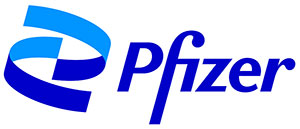- Introduction
- Lymphocytes de type 1, type 2 et type 17
- Immunité et inflammation de type 1, type 2, type 17
- Cytokines, récepteurs des cytokines et voies de signalisation intracellulaire
- Physiopathologie de l’inflammation cutanée
- Phase de résolution de l’inflammation
- Chronicité, rechutes et sévérité des dermatoses inflammatoires chroniques
- Introduction
- Facteurs pathogéniques de la maladie
- Présence d’altérations de la peau non lésionnelle
- Pertes des mélanocytes épidermiques
- Intervention de l’immunité innée
- Intervention de l’immunité adaptative de type 1
- Voies de signalisation impliquées dans le vitiligo
- Intervention de réponses immunitaires autres que celle du type 1
Références
1. Annunziato F, Romagnani C, Romagnani S. The 3 major types of innate and adaptivecell-mediated effector immunity. J Allergy Clin Immunol 2 015 ; 135 : 626-35.
2. Nakahara T, Kido-NakaharaM,TsujiG, Furue M.Basics and recent advances in the pathophysiology of atopic dermatitis. J Dermato 2021 ; 48: 130-9.
3. Chiricozzi A, Maurelli M, Peris K, Girolomoni G. Targeting IL-4 for the Treatment of Atopic Dermatitis. Immunotargets Ther 2020 ; 9: 151-6.
4. Puar N, Chovatiya R, Paller AS. New treatments in atopic dermatitis. Ann Allergy Asthma Immunol 2021 ; 126 : 21-31.
5. Lepe K, Zito PM. AlopeciaAreata. 2021 Nov. 15. In : StatPearls [Internet]. Treasure Island (FL) : StatPearls Publishing,Jan.2022.
6. Olayinka JJT, Richmond JM. Immunopathogenesis of alopecia areata. Curr Res Immunol 2021 ; 2: 7-11.
7. Martin L, Nicolas JF. Regulatory T cells control hair growth and prevent the development of alopecia areata. Med Sci (Paris) 2020 ; 36: 941-3.
8. Migayron L, BonifaceK, Seneschal J. Vitiligo, From Physiopathology to Emerging Treatments: A Review. Dermatol Ther (Heidelb) 2020 ; 10 : 1185-98.
9. Seneschal J, Boniface K, D’Arino A, Picardo M. An update on Vitiligo pathogenesis. Pigment Cell Melanoma Res 2021 ; 34: 236-43.
10. Lee EY, Alhusayen R, Lansang P, Shear N, Yeung J. Qu’est-ce que l’hidradénite suppurée ? Can Fam Physician 2017 ; 63: e86-e93.
11. Sabat R, Jemec GBE, Matusiak Ł, Kimball AB, Prens E, Wolk K. Hidradenitis suppurativa. Nat Rev Dis Primers 2020 ; 6: 18.

